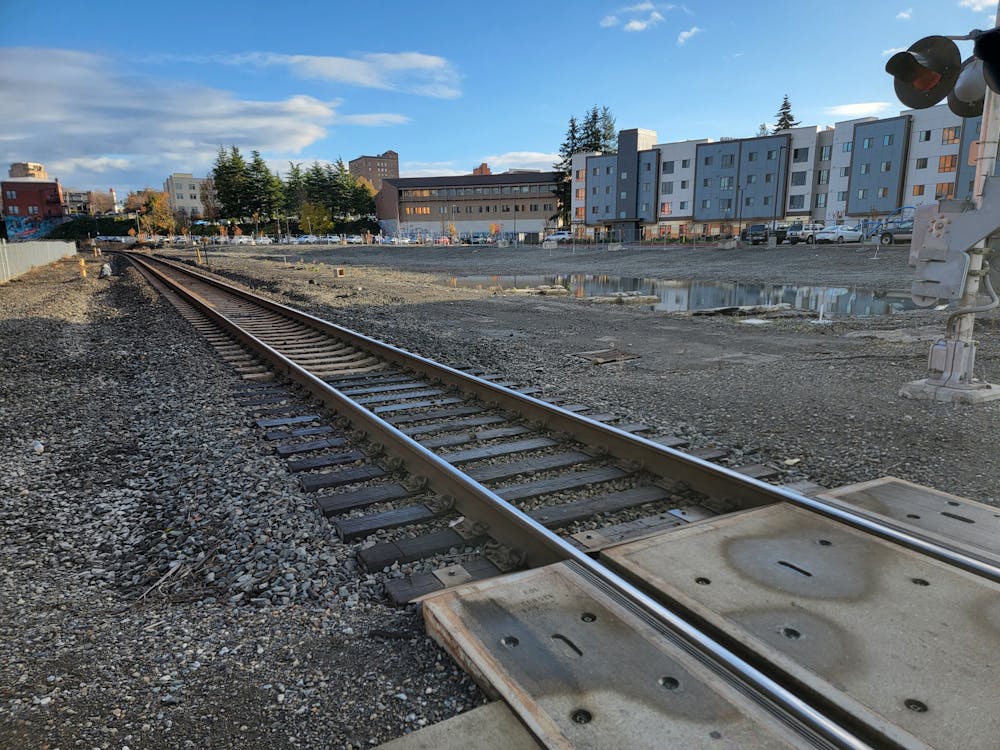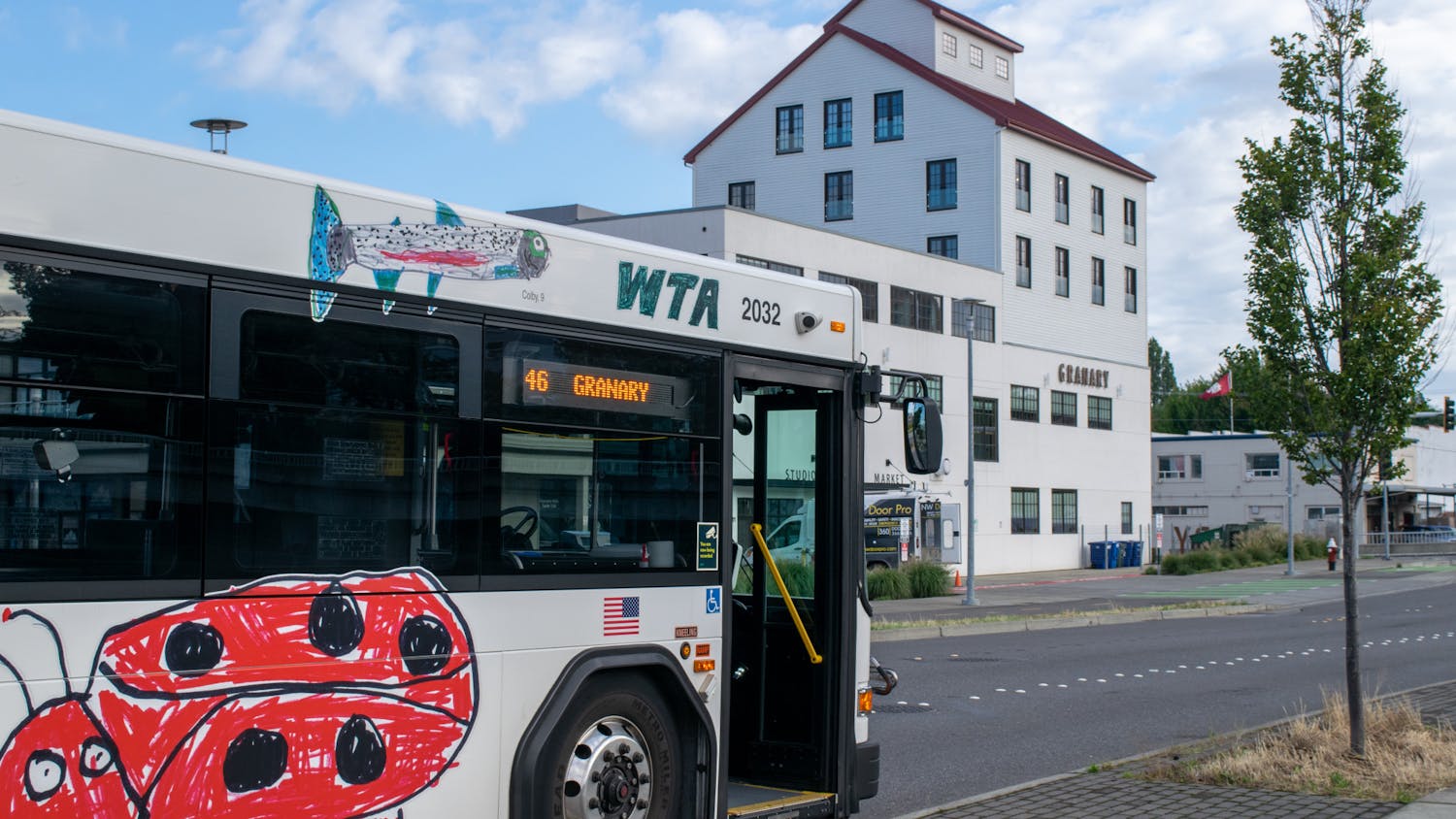Editors Note: This article has been updated since publication to correct the misspelling of a source's name.
The Millworks Project, a two-phase community-focused project planned for the Bellingham Port, is working to shed light on the toxic history behind the waterfront while creating a space for opportunity by the end of 2027.
The Port of Bellingham acquired the Lignin Parcel location, the former home of the Georgia-Pacific Pulp and Tissue Mill, in 2005. The mill contaminated the area with metals and pH imbalances and since then the location has undergone a toxics clean-up process through Washington’s Model Toxics Control Act.
Now, efforts like the Millworks Project aim to meet the strong demands for a vibrant Waterfront economy and community space, according to Michael Hogan, the Port’s public affairs administrator.
Jordan Swenson, a Bellingham resident, said the development of the Port is great for families and the atmosphere of the space reflects the spirit of Bellingham.
“I feel like Bellingham is really working to improve the area while restoring the historical aspects,” she said. “They’re doing a lot of preservation which I appreciate.”
Whatcom Community Foundation, a nonprofit promoting local connections through philanthropy, partnered with the Port to meet the goals of the community vision outlined in the Waterfront District Master Plan.
“The Port liked our idea but also wanted to see more density of activity on the waterfront, and of course, we are very short on housing in this community, so the idea came to add housing,” said Alexandrea Spaulding, director of the Special Projects Whatcom Community Foundation.
Affordable housing was the first phase of the Millworks Project, completed in April 2024. The permanently affordable apartments are owned and managed by Mercy Housing Northwest, which currently houses 83 families and a six-classroom YMCA Childhood Early Learning Center.
Tammi Laninga, professor and planning program director at Western Washington University did a study with her students about the Millworks Project when it was first proposed and thought a community space with affordable housing on reused land was an excellent idea.
“I think it's a super exciting concept, and I think [it’s] just the right thing for the waterfront,” Laninga said.
Hogan said the property was acquired not just with affordable housing in mind, but also to develop a public space to support Bellingham’s economy with retail activity, commercial networking and more.
“How do we do that in a way that connects downtown to the waterfront but also enhances and supports the existing downtown businesses?” Hogan said.
The answer? Phase two.

The Georgia-Pacific denaturing plant building, located on the opposite side of the train tracks of the Millworks Project, is pictured on Oct. 31, 2024, in Bellingham, Wash. The industrial site is cleaned when needed as the waterfront develops for the community. // Photo by Larson McDonagh
Phase two of the Millworks Project will integrate a seven-story building for a food campus, small food-based businesses, a nonprofit hub and an event center.
“The initial idea was the food campus,” Spaulding said. “We have this agricultural county, we've got a lot of opportunity to further develop the food system and the food economy here.”
The building will also include 109 residential units of workforce housing.
“Planning and design will continue into 2025 with plans to secure a building permit and break ground at the end of 2025,” Spaulding said in an email.
Laninga said redeveloped land, as opposed to starting from scratch, is better for the economy and the environment.
“It's so much better to redevelop,” she said. “We already have the infrastructure there. We have the electricity, the water and the sewer and all of those things that are really expensive to put in.”
In terms of the industrial site redevelopment, Laninga says we’re not the first. In Oslo, Norway, there are also large waterfront redevelopment sites that share a history of previous industrial contamination.
“They have market rate and affordable housing and also mixed-use and they're creating community gathering places,” she said. “We have such a great opportunity here in this country to do that. I feel like that's what we're doing here with Millworks.”
Larson McDonagh (they/them) is a City News reporter for The Front this quarter. They are majoring in Environmental Journalism. They are the current President of Western’s Advanced Treble Chorale for which they’ve been involved for the past three years. Outside of school, they enjoy reading good books and cooking delicious meals. You can reach them at larsmcdonagh.thefront@gmail.com.






